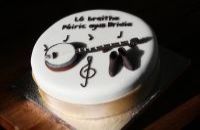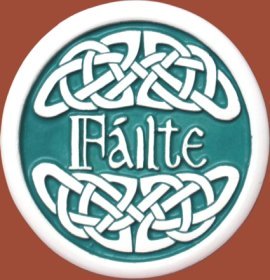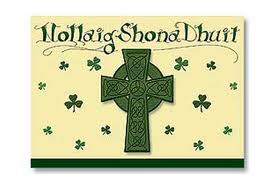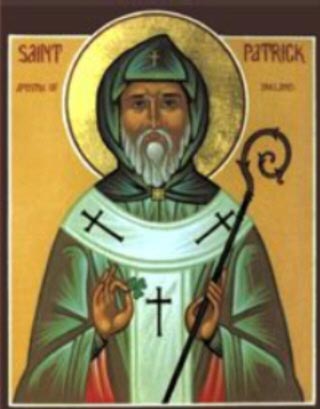Irish Gaelic Phrases and Expressions
There are lots of wonderful Irish Gaelic phrases and expressions, some of which have been translated to English but I have to say the often quoted ‘Top of the morning to you’ is not one of them. I know of no Irish person who uses it and it sounds as strange to Irish people as it does to most other people. In fact, I am not sure where that phrase originated though I have heard it rumoured that it may be from New Zealand but I wouldn't bet on it.
Now that that’s off my chest, let’s start with some Irish Gaelic phrases and Gaelic expressions that most Irish people should know or have learned in school. I give a non-linguistic pronunciation guide to the expression, a fairly literal translation and an equivalent English expression.
It is important to know that some Gaelic expressions vary from one dialect to another. In Ireland there are three key dialects, in the North (Ulster), West (Connaught) and South (Munster). I will go into these differences in more detail elsewhere. Anyway most people in Ireland learn standard Gaelic in school, basically a mix of all three dialects.
In the pronunciation guide for all the Irish Gaelic phrases below I have left 'ch' as is. This is because 'ch' in Gaelic does not have an equivalent sound in English. That said, many people will be familiar with the throaty sound made in the Scottish and Irish word 'loch'. This is the correct sound. If you are not able to replicate this sound, pronounce 'ch' as a 'k'. It may not be correct but you will be understood. Just don't pronounce 'ch' as 'ch' in 'church' which no one will understand.
I have included a video of the words below to help you with the pronunciation. While I am not a native speaker, my pronunciation should be reasonably accurate.
Irish Gaelic Phrases most Irish people know
| Expression |
Dia duit Dee-ah gwit God to you Hello |
| Expression Pronounced Literal Meaning In English |
Dia is Muire
dhuit Dee-ah iss Mwir-eh gwit God and Mary to you Hello, the response to 'Dia dhuit' |
| Expression Pronounced Literal Meaning In English |
Cad is ainm
duit? Cod iss anim gwit? What is the name to you? What is your name? |
| Expression Pronounced Literal Meaning In English |
Seán
is ainm dom Seán iss anim dum Seán is the name to me My name is Seán |
| Expression Pronounced Literal Meaning In English |
Níl
a fhios agam |
| Expression Pronounced Literal Meaning In English |
Dún
an doras |
| Expression Pronounced Literal Meaning In English |
Slán
leat Slawn lat Health/Safety with you Goodbye |
| Expression Pronounced Literal Meaning In English |
Más
é do thoil é Maws aye duh hull aye If it is your will Please |
| Expression Pronounced Literal Meaning In English |
Ní
thuigim |
| Expression Pronounced Literal Meaning In English |
Sláinte Slawn-che Health Cheers (toast) |
| Expression Pronounced Literal Meaning In English |
Gabh mo leithscéal Gov muh leh-scale Accept my excuse Excuse me, Pardon me |
| Expression Pronounced Literal Meaning In English |
Conas atá
tú? |
| Expression Pronounced Literal Meaning In English |
Tá
me go maith Taw may guh maw I am well I am well |
| Expression Pronounced Literal Meaning In English |
Oíche
mhaith Ee-hah wah Night good Goodnight |
| Expression Pronounced Literal Meaning In English |
Go raibh maith
agat Guh rev mah ah-gut That there may good at you Thanks |
| Expression Pronounced Literal Meaning In English |
Tá
fáilte romhat Taw fall-che row-at There is a welcome before you You're welcome (response to thanks and a greeting) |
Gaelic Expressions that are good to know
| Expression |
Cad
as dhuit? Cod oss gwit? Where out of are you? Where are you from? |
| Expression Pronounced Literal Meaning In English |
Is as na Stáit
Aontaithe mé Iss oss nah Stawt Ane-tih-hah may It is out of the States United I am I am from the United States |
| Expression Pronounced Literal Meaning In English |
Abair arís
é Ah-bur areesh aye Say again it Say it again |
| Expression Pronounced Literal Meaning In English |
Maith thú Moh hoo Good to you Well done |
| Expression Pronounced Literal Meaning In English |
Slán
go fóill |
Expression |
Tá
áthas/fearg/ocras/tart/brón/díoma orm |
Expression |
Tá
sé fuar/te/gaofar/ ag cur báistí/ag cur sneachta/ |
| Expression Pronounced Literal Meaning In English |
Is/Ní
maith liom é Iss/Nee moh lum aye It/Not agrees with me I like it/I don't like it |
| Expression Pronounced Literal Meaning In English |
Ar mhaith
leat tae/deoch? |
| Expression Pronounced Literal Meaning In English |
Is cuma liom Iss cum-ah lum I don't mind/I don't care |
| Expression Pronounced Literal Meaning In English |
An bhfuil
Gaeilge agat? On will Gail-geh ah-gut? Is there Gaelic at you? Do you speak Gaelic/Irish? |
| Expression Pronounced Literal Meaning In English |
Beagáinín |
| Expression Pronounced Literal Meaning In English |
Tá
cúpla focal agam |
| Expression Pronounced Literal Meaning In English |
Is múinteoir/macléinn/dlídóir/Éireannach
mé Iss moon-tore/mack-lane/dlee-dore/Air-en-och may Is a teacher/student/lawyer/Irish person I am I am a teacher/student/lawyer/Irish person |
| Expression Pronounced Literal Meaning In English |
Cén
chaoi a bhfuil tú? Kane chwee (kwee) a will to? What way are you? How are you? Same as 'Conas atá tú?' above but used in Western Gaelic dialect |
| Expression Pronounced Literal Meaning In English |
Conas atá
an craic? Kun-ass a-taw on crack? How's the craic/fun? What's up? |
Merry Christmas in Gaelic
The Irish Gaelic phrase for Merry Christmas is 'Nollaig shona dhuit' (pronounced Null-ig hun-ah gwit). You can also say 'Nollaig faoi shéan is faoi mhaise dhuit' (pronounced Null-ig fwee hyane iss fwee vosh-eh gwit) which means 'A prosperous and pleasant Christmas'
To say Happy New Year, we use the gaelic expression 'Athbhliain faoi mhaise dhuit' (prononunced 'aw-vlee-an fwee vosh-eh gwit' ) which can be more close translated as 'A prosperous New Year.'
Happy Birthday in Gaelic

The gaelic expression for 'Happy Birthday' is simply 'Lá Breithe Shona dhuit' (pronounced 'Law breh-ha hun-ah gwit). If you want to reveal your age you can say the following: 'Tá mé fiche seacht mbliana d'aois' (pronounced 'Taw may fih-heh shocht mleena deesh') which means 'I am 27 years of age'.
You can also wish somebody well on their birthday by using the humorous Irish Gaelic phrase 'Go maire tú an lá' (pronounced 'Guh mwir-eh to on law) meaning 'May you survive the day.'
Póg mo thóin
The Irish Gaelic phrase 'Póg mo thóin' (pronounced pogue mohone) is one of the first Irish Gaelic phrases that many visitors to Ireland learn, probably because people just seem to love learning curses as much as teaching them. It means literally 'Kiss my ass' but can be used as 'Get out of it' when you think somebody is trying to pull the wool over your eyes or when you get annoyed with them.
The London-Irish band 'The Pogues' were originally called 'Pogue Mahone', an anglicised version of the gaelic expression. Because of BBC censorship, they shortened the name to be less offensive. I have included a video of them singing their best known song 'The Fairytale of New York.'
I am open to correction or suggested improvements on anything above. I would also love to hear of other Irish gaelic phrases you think should have been included as basics. Get in touch with me through the contact GaelicMatters page.
Pages Related to Irish Gaelic Phrases
If you didn't find what you are looking for check out the Irish words page. If you want some tips and suggestions on how to learn Irish Gaelic visit our Learn Irish Language page.
Gaelic Matters > Irish Gaelic Phrases
Did you know that Saint Patrick was not an Irish man or the first to bring Christianity to Ireland? Learn a little of the History of St Patrick.



New! Comments
Have your say on Gaelic Matters! Leave me a comment in the box below.